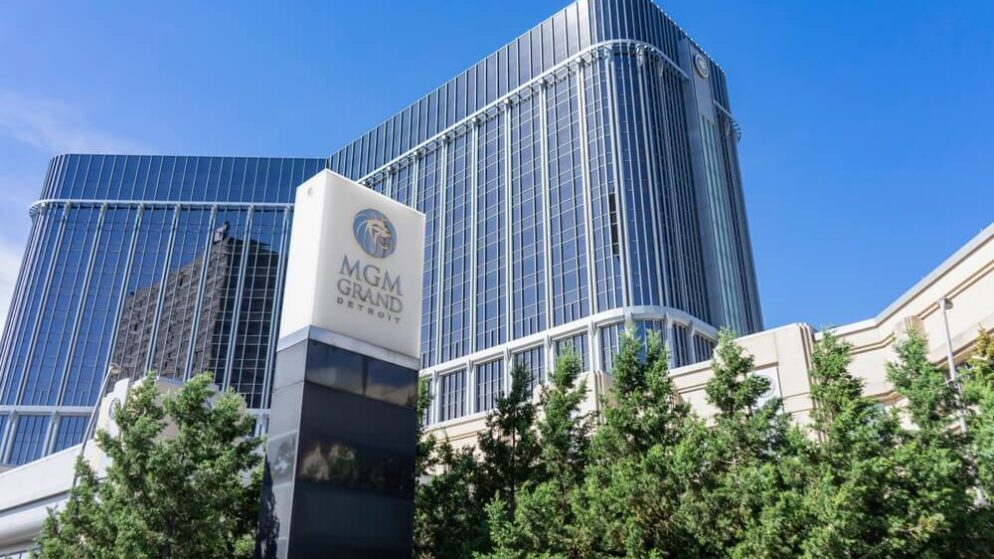

Casinos, often associated with the glitz and glamour of entertainment, are no strangers to labor unrest. Across the United States, casino workers’ strikes have become a recurring theme, reflecting the intricate dance between labor rights, economic considerations, and the pursuit of fair working conditions.
In a bold move, thousands of unionized casino workers in Downtown Detroit walked off the job, leaving three major casinos—MGM Grand Detroit, MotorCity Casino, and Hollywood Casino at Greektown—operating with a skeleton staff. The strike was initiated after the union contract’s expiration, and as of noon on Tuesday, October 17, approximately 3,700 union-represented employees were on the picket lines.
The primary points of contention between the workers and casino management revolved around healthcare costs and wages. Despite the challenges posed by the ongoing pandemic recovery, union members expressed their need to be heard and their reluctance to strike during tough times. The workers, represented by Unite Here and other unions under the Detroit Casino Council, sought contract improvements that addressed inflation-adjusted wages, healthcare, retirement security, fair workloads for housekeepers, and more.
The strike, authorized by 99% of the casinos’ union employees, had the potential to significantly impact Detroit and the state of Michigan. According to the Unite Here union, the daily revenue at risk amounted to approximately $738,000 in city and state tax revenues and $3.4 million in casino operator revenues per day.
Thankfully, a tentative union deal was finally ratified, thus bringing the 47-day strike to an end. Workers at MGM Grand Detroit, members of the Detroit Casino Council representing nearly 4,000 employees across the city’s three casinos, voted to ratify a new contract. The approval marked the end of a labor dispute that saw employees at MGM Grand Detroit, Hollywood Casino at Greektown, and MotorCity Casino walk off the job on October 17.
The new five-year agreement covers about 1,700 employees and includes several key provisions that address the workers’ demands. According to the Detroit Casino Council, the new contract offers an average immediate 18% pay raise, workload reductions, and no increases in health care costs for employees.
The union, which represents various roles such as dealers, cleaning staff, and valets, highlighted the sacrifices made during the pandemic and emphasized that the negotiated contract secures health care benefits and provides significantly improved wages.
Casino workers strike in other parts of the country
The history of casino workers’ strikes in the US is deeply entwined with the evolution of the gaming industry. From the early days of Las Vegas as a burgeoning gambling hub to the expansion of casinos across the country, labor relations have been a constant undercurrent.
For instance, not too long ago in November, tens of thousands of Las Vegas hotel workers geared up for a potential strike that sent shockwaves through the city’s bustling hospitality and entertainment sector. The Culinary Workers Union, representing around 35,000 members, has set a deadline of November 10, just days before the highly anticipated Las Vegas Grand Prix weekend.
The union’s targets included major players in the casino industry, including MGM Resorts International, Caesars Entertainment, and Wynn Resorts. With contracts having expired earlier this year, the workers were ready to walk off the job if negotiations refused to yield favorable deals.
The looming strike in Vegas was set to coincide with the Las Vegas Grand Prix weekend, a high-profile event expected to draw thousands to the iconic Strip. While the Culinary Workers Union expressed the hope that a strike could be avoided, they emphasized their members’ readiness to take action if necessary. The last time Nevada’s largest labor union went on strike was decades ago, which made this recent walkout a significant event in the state’s labor history.
Negotiations between the Culinary Workers Union and the casino companies have been ongoing since April, with little progress reported. Fortunately, The Culinary Workers Union Local 226 and Bartenders Union Local 165 managed to reach an agreement before the November 10th deadline. This was a crucial moment for the labor movement, which emphasized the vital role unions play in achieving this societal balance.
Why are casino worker strikes so rampant?
Wage Disputes:
Wage issues often catalyze casino workers’ strikes. Employees, ranging from dealers and housekeepers to culinary staff, advocate for fair wages commensurate with the industry’s profitability.
Working Conditions:
Concerns about working conditions, including long hours, inadequate break times, and workplace safety, contribute to labor unrest. Casino employees demand environments that prioritize their well-being.
Contract Negotiations:
The expiration of labor contracts frequently triggers strikes as unions and management engage in negotiations. Disputes over healthcare benefits, retirement plans, and other contractual elements can lead to prolonged standoffs.
Technological Shifts:
The integration of technology in casinos, such as automated services and electronic gaming options, has raised concerns among workers about job security. Strikes may emerge as a response to the perceived threat of job displacement.
Union Power and Representation:
The strength of labor unions, particularly in regions with a robust casino industry, influences the dynamics of strikes. Unions serve as advocates for workers’ rights and negotiating parties during contract discussions.
Casino workers’ strikes pose challenges not only for the employees directly involved but also for the broader gaming industry. Balancing the imperative of maintaining profitability while addressing the legitimate concerns of workers requires a delicate equilibrium. Prolonged strikes can disrupt casino operations, impact revenue streams, and tarnish the industry’s reputation.
Examining recent instances of casino workers’ strikes provides a snapshot of the ongoing challenges faced by employees and management alike. From Atlantic City to tribal casinos in California, the issues at the heart of these strikes echo common themes of fair compensation, improved working conditions, and the preservation of traditional employment roles in the face of technological advancements.
Final Thoughts
In conclusion, the phenomenon of casino workers’ strikes in the US encapsulates the intricate interplay between economic forces, labor rights, and the evolving nature of the gaming landscape. Understanding the root causes, historical context, and impact of these strikes is imperative for fostering a more equitable and sustainable future for casino workers and the industry as a whole.
As the US casino industry continues to evolve, addressing the concerns that fuel casino workers’ strikes requires a collaborative approach. Stakeholders, including casino operators, labor unions, and regulatory bodies, must engage in constructive dialogue to find common ground. Striking a balance between profitability and fair labor practices is not only essential for the well-being of casino workers but also crucial for sustaining a thriving and responsible gaming industry.



